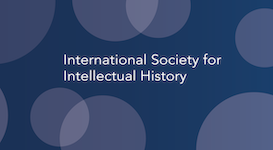 Shakespeare and Natural History
Shakespeare and Natural History
As a part of the Shakespeare 450 conference in Paris from 21-27 April 2014, this panel (10) seeks to extend our understanding of how Shakespeare’s time was teeming with would come to be known as natural history. Today, 450 years after Shakespeare’s birth, we are the beneficiaries of more than just the poetry of the era. Shakespeare’s recognition of and interaction with the community of natural historians demonstrates the importance he and others of his time placed on this new field. At the same time we honor the legacy of his literary engagement, so too can we consider the impact that his generation had on the imminent scientific revolution and the interaction among science, literature and society that would follow.
A change in discourse is seen in the classification of strange beings around the time of Shakespeares birth, as documented by Lorraine Daston and Katharine Park. Elizabeth Spiller has extended this phenomenon to her analysis of The Tempest, explaining the connection to the unique characters in the play. Before the modern period, curious beings were appreciated as rare events. Wonders in the medieval period were collected but not organized; they were, as Daston and Park characterize them, not museums but thesaurus. By the early sixteenth century, groups of naturalists engaged in a collective enterprise to distinguish the inhabitants of the natural world, which had recently become larger with the discovery of varieties of plants and animals in the new world.
Thus, as described by Brian Ogilvie, an international community arose to ponder the legends, reports, and evidence of nature. The information that arose from a network of sailors, farmers, and merchants provided information to scholars, who then compared the reports with information from the ancients and published their own analyses. Starting shortly before Shakespeares birth in 1564, as described by Ogilvie, an international community arose to ponder the legends, reports, and evidence of the natural world as exact, historical facts. By 1590, as noticed by Ogilvie, the descriptive techniques used by the naturalists in Shakespeares time depended upon a system of differences having a goal of helping other naturalists find continuity in the natural world and distinguish types from each other, rather than recreating a plant or animal as unique objects for contemplation. In the plays, certainly, we see characters who display this ethic, which should contribute to our understanding of their character.
This fomenting discipline of natural history was part of the environment into which Shakespeare was born and began his work. Some of the authorities consulted by Shakespeare are natural histories, like the catalogs of plant and animal life that became popular in his century. Some plays, like The Tempest, draw heavily upon the discourse about monsters in his lifetime; others are more subtly flavored with botanical knowledge. Astrology – a practice that led individuals to observe the heavens and became more mathematical in Shakespeares day – figures in the texts, and the communities of correspondents and travelers in which natural historians played a part are in evidence as well. A special double issue of South Central Review attempted to rectify the relative neglect of the works of Shakespeare in the history of science, even at the same time it noticed a long tradition of considering the intersection of these themes in his work. What is more, as suggested by Carla Mazzio, today more so than in the Renaissance, the arts and science are interanimated (11). This panel will be an opportunity to build on this study of the characters, settings, and allusions in Shakespeares work to help us understand the echoes, controversies, and premonitions of the natural historian in his work.
For this panel, I am seeking a multidisciplinary group of Shakespeare scholars, Renaissance literature experts, historians of science, and classicists to engage the theme of Shakespeare and science along broad lines. For instance:
1. What echoes or foreshadowings of the new natural history are found in Shakespeare’s work? What classical or contemporary scientific texts are particularly important for Shakespeare scholars? Which plays, poems, or even characters lead themselves to our greater understanding of the discipline?
2. How do Shakespeare’s gestures toward natural history differ from the way the practice develops? In particular, what does the way he engaged with sources tell us about the practitioners of and assumptions about early modern science? To what extent is Shakespeare supporting this new discipline? Is it fair to call Shakespeare a natural historian? A popularizer of science?
3. In what way do the communities that Shakespeare depicts reflect the mobility exploited by natural historians or provide contrasting examples from earlier times? Can a better knowledge of particular fields, such Renaissance findings in botany/zoology, anatomy/medicine/pharmacology, astronomy/alchemy, or geology/geography/cartography, provide us with a richer understanding of Shakespeares work? Which key figures or texts from these disciplines should be as well known as Plutarchs Lives or Holinsheds Chronicles to Shakespeare scholars?
4. How can the evidence of natural history in Shakespeare help us better understand the interaction between science and literature in general? Does it offer us evidence of the social construction of scientific knowledge?
Proposals for papers that address these or related topics are welcome. Proposers are encouraged to review the relevant articles in the Winter and Spring 2009 issue of South Central Review, in addition to the bibliographic notes about the contributors in Carla Mazzios editorial introduction to the special edition, before submitting. Send your name, email, affiliation, abstract (250 words) and presentation title with a brief CV by email to Chris Leslie by August 1, 2013. Participants in this panel will precirculate draft papers with each other by April 7, 2014 to ensure a lively discussion at the conference.
This conference is organized by The Societe Française Shakespeare and will take place in a variety of venues in the center of Paris. For more information, visit the Shakespeare Anniversary website.

